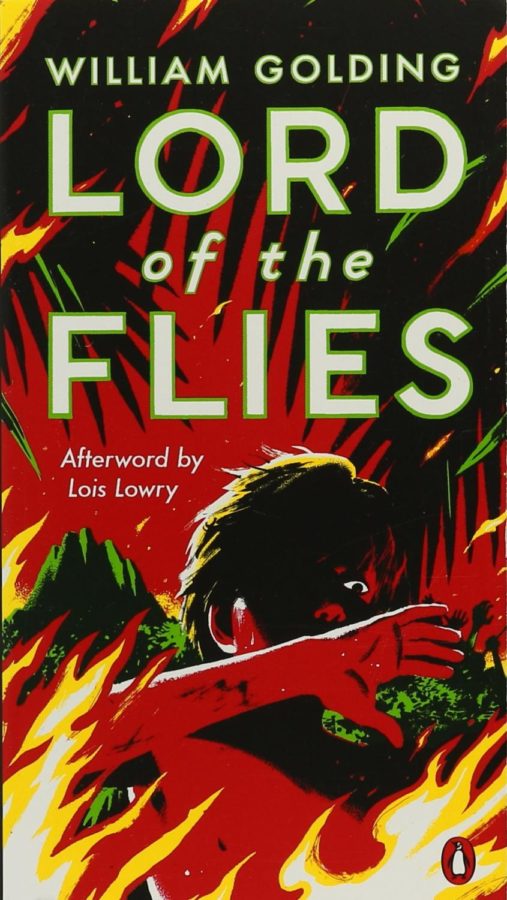‘Lord of the Flies’: The Darker Side of Children
Since the novel’s publication in 1954, “Lord of the Flies” has been adapted into a movie adaptation in 1963, and another in 1990.
In today’s world, many adolescent children yearn to be independent from authority so they can do what they want without consequences. This dream came true for a group of schoolboys, in William Golding’s 1954 novel, “Lord of the Flies,” when their plane crashed on a deserted island where they face no opposition. However, the seemingly innocent children unleash their primitive, savage ways as two leaders with conflicting ideas in ruling clash for power over their pack of peers. The followers of the two rival leaders take extreme actions in order to take control, including ruthlessly killing supporters of the opposing leader. In the midst of all the chaos, myths of a monstrous beast arise, coercing the schoolboys into choosing a side that they believe will best protect them.
This lasting classic written in the mid 20th century is a must-read for everybody. From the beginning where Ralph blows the conch horn to gather the rest of the boys, to the sailor’s shame as he sees the boys reverted to their primordial ways, it is difficult to put the book down, as you will be so immersed that you will feel like you are in the midst of all of the chaos.
If you like modern action/adventure novels such as the “Hunger Games” series, I strongly recommend that you read this book. They share many characteristics, such as how there are a group of children trapped in a perilous situation, following their endeavor to survive. In spite of their similarities, the “Lord of the Flies” goes the extra step, as Golding uses his characters to display his critique on the innate qualities that all humans share.
Despite the book being centered around school children, there is a substantial amount of violence in the book, contributing to its fast-paced, action-filled storyline. Even after being stranded for a day or two, a group of children no older than 12 march around, triumphantly chanting “Kill the pig. Cut her throat. Spill her blood” (Golding 69) after successfully slaughtering a pig. After a few days, the stranded schoolboys are already reverting back to their state of savagery that humanity once was. Their sudden transformation into cavemen-like creatures makes most of the characters virtually unrecognizable by the end of the novel.
Even though some of the characters just seem completely evil, Golding still gives a softer side to some of his crueler characters, such as Jack. In Chapter 4, even Jack stops himself from killing the pig because of the morality still within him. Golding does a spectacular job of implementing a kinder aspect to his characters compared to the heartless characters they usually are in the book, making the book much more enticing to read.
Speaking of character traits, Golding gives his characters unique attributes that people can relate to. Each and every character has traits that people share with them, such as Ralph’s leadership and charisma, Piggy’s intellect and loyalty and Simon’s wisdom and shyness. The book reveals traits that people are not necessarily proud of, such as Jack’s cruelty, Roger’s sadism and the overarching trait of being power-hungry. Golding makes a statement that such traits are part of human nature, but seem almost invisible on the outside of one’s character.
Although this book was written about 60 years ago, its message about how humanity’s hidden evil and thirst for power is timeless. The savagery of the boys might seem extreme in today’s context, but the way the schoolboys crack under pressure is the same today and it will more than likely remain the same, for it is part of human nature.
In all, Golding’s novel about boys stranded on an island tells not just the tale of their struggle for power, but hidden beneath the action-filled plot lies Golding’s critique of human nature, which remains as one of the most perennial truths that we face. As Simon said, “Maybe there is a beast. What I mean is … maybe it’s only us” (Golding 89).
Your donation will support the student journalists of Portola High School. Your contribution will allow us to purchase equipment and cover our annual website hosting costs.




